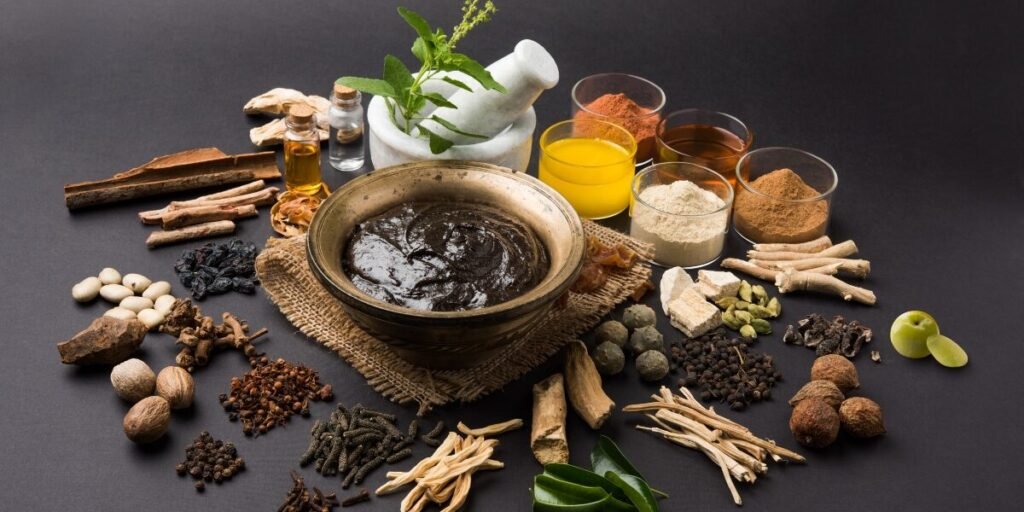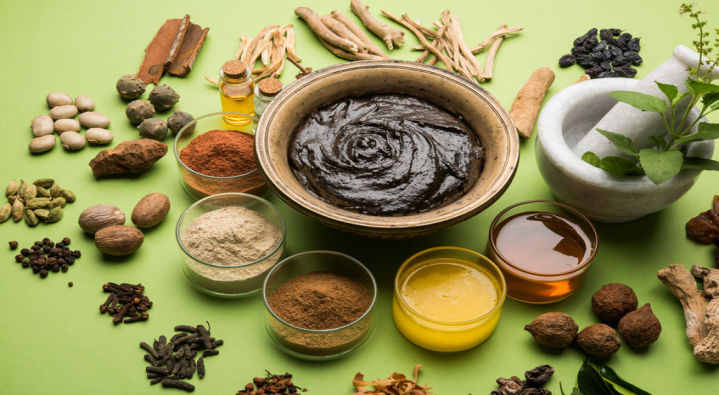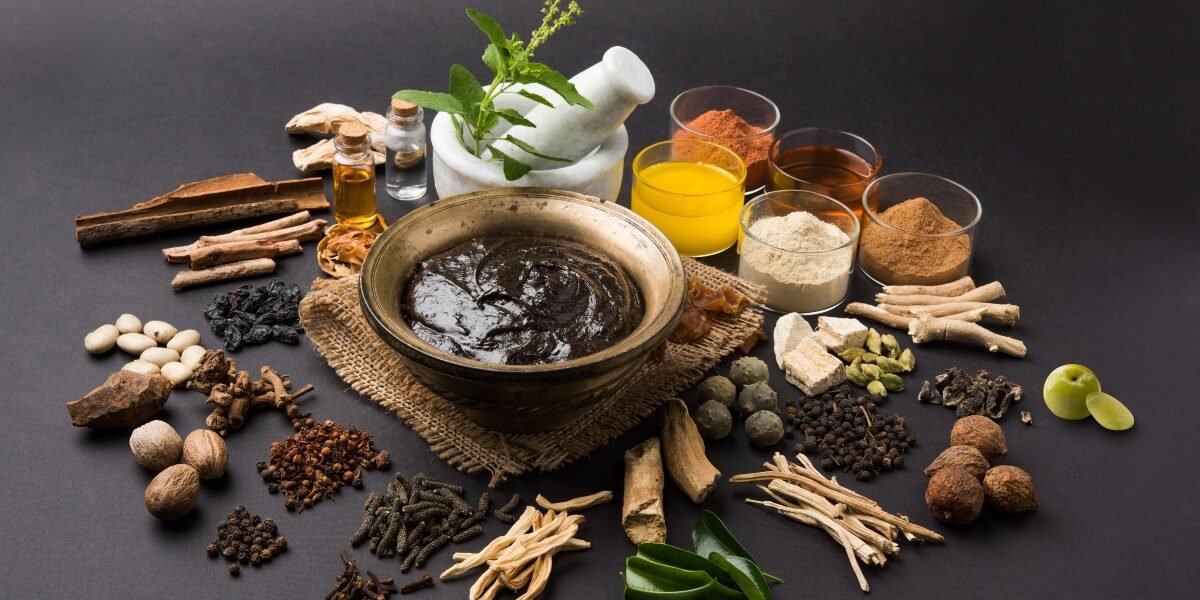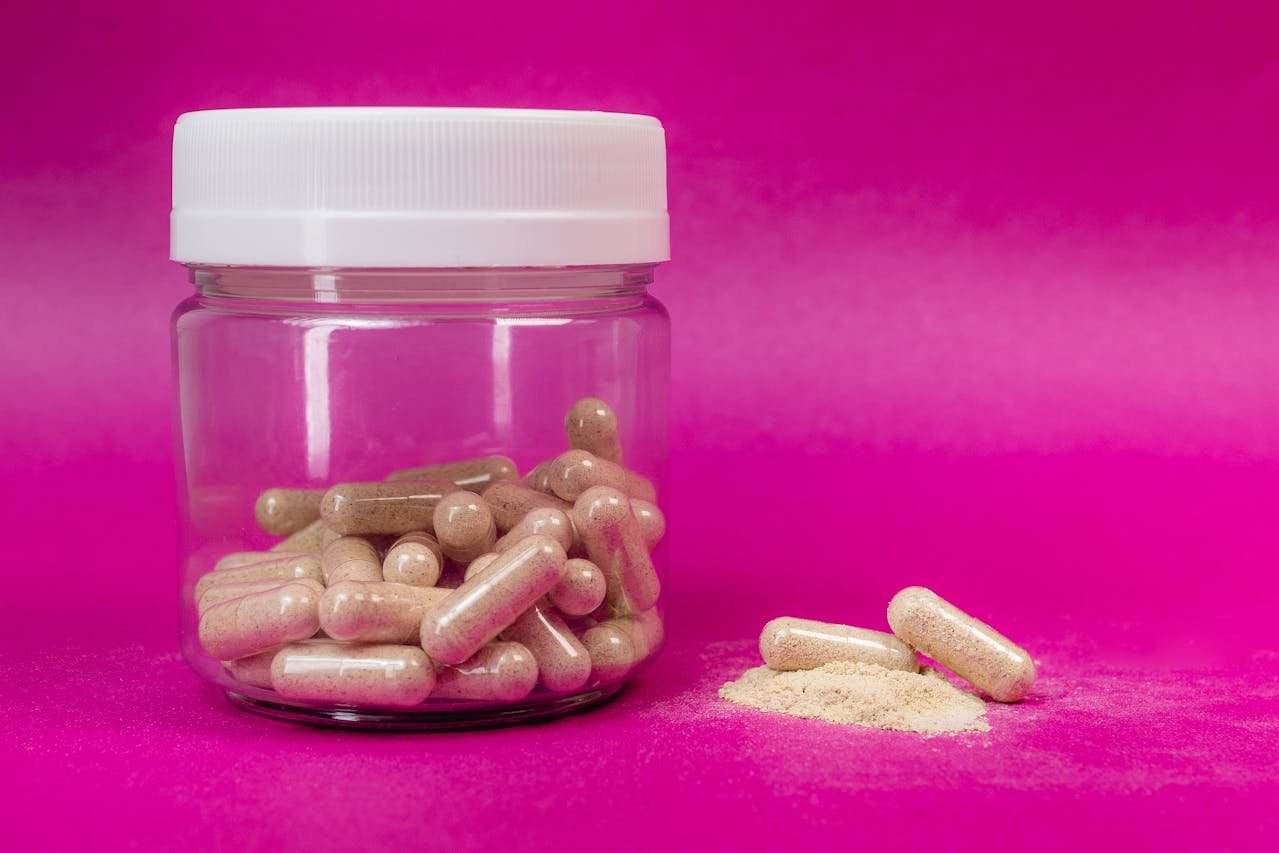
As someone who has deeply explored Ayurvedic wellness, I know firsthand how powerful natural remedies can be, especially for balancing hormones during menopause. Menopause is a significant phase in every woman’s life. While it marks the end of the menstrual cycle, it often brings a host of symptoms, from hot flashes and night sweats to mood swings and sleep disturbances. Ayurveda, the ancient Indian system of medicine, offers a holistic approach to managing these changes gently and naturally. By incorporating specific herbs, many women can experience a more balanced, comfortable transition. Here, I’ll share the Ayurvedic herbs known to aid in hormonal balance and explain how they work to alleviate menopausal symptoms.
Why Ayurvedic Herbs for Menopause?
Ayurveda has long recognized menopause as a natural transition, not a “problem” to be solved. Rather than focusing solely on symptom relief, Ayurvedic principles aim to balance the body’s energies (or “doshas”) and support overall well-being. Certain herbs in Ayurveda have adaptogenic properties, meaning they help the body adapt to hormonal shifts and stressors, making them particularly effective during menopause.
Here’s a deeper look at some of the most recommended Ayurvedic herbs for balancing hormones and why they work.
1. Ashwagandha (Withania somnifera)
Benefits
Ashwagandha is often hailed as an adaptogen and is widely celebrated in Ayurvedic medicine for its balancing effects on the body’s cortisol levels (stress hormone) and for supporting adrenal health. This herb can be particularly helpful during menopause as it supports the body in managing stress, which often exacerbates menopausal symptoms.
How It Helps
When cortisol levels are balanced, other hormonal imbalances can be more manageable. Ashwagandha helps improve energy, reduce fatigue, and balance mood swings — all common during menopause.
Suggested Dosage
A typical dose for menopausal symptoms is 300-500 mg per day, but as with all supplements, consult with a healthcare provider before use.
2. Shatavari (Asparagus racemosus)
Benefits
In Ayurveda, Shatavari is known as a rejuvenative herb for women, often referred to as “the queen of herbs” for female health. It contains phytoestrogens, plant compounds that mimic estrogen in the body, which can help alleviate estrogen-related symptoms of menopause like hot flashes and vaginal dryness.
How It Helps
Shatavari works by providing natural estrogen support, which can soothe symptoms associated with decreasing estrogen levels. Additionally, it nourishes the female reproductive system, which can help stabilize emotions and support a healthy libido.
Suggested Dosage
The typical dose is around 500-1000 mg per day in capsule form or as directed by an Ayurvedic practitioner.

3. Triphala (Three-Fruit Formula)
Benefits
Triphala is a combination of three fruits — Amalaki, Haritaki, and Bibhitaki — and is well-known in Ayurveda as a gentle digestive aid. During menopause, hormonal changes can impact digestion and cause bloating, constipation, or irregularity. Triphala helps regulate digestion, enabling better absorption of nutrients and more stable energy levels.
How It Helps
By supporting gut health, Triphala helps improve nutrient absorption, ensuring that the body gets the essential vitamins and minerals it needs, which can often help stabilize hormone levels.
Suggested Dosage
Typically, 1-2 grams of Triphala powder taken with warm water at bedtime is effective, but consult a practitioner for personalized guidance.
4. Brahmi (Bacopa monnieri)
Benefits
Known for its brain-boosting properties, Brahmi is an excellent herb for dealing with cognitive changes during menopause, like memory lapses or “brain fog.” It’s a calming herb that can support mental clarity and reduce anxiety.
How It Helps
Brahmi works by reducing oxidative stress and supporting neurotransmitter function, which aids in improving focus and concentration. By soothing the nervous system, Brahmi can help mitigate anxiety and support restful sleep, making it a great ally for menopausal women facing mood swings and sleep disruptions.
Suggested Dosage
A typical dosage is 300 mg per day, though it’s best to consult an Ayurvedic expert to determine what’s right for you.
5. Guduchi (Tinospora cordifolia)
Benefits
Guduchi, also known as “Amrita” (meaning “nectar of immortality”), is an immune-boosting herb that supports overall vitality. During menopause, immune function can sometimes fluctuate due to hormonal changes, making Guduchi an excellent choice for supporting energy levels and overall wellness.
How It Helps
Guduchi has adaptogenic properties, helping the body cope with stress and inflammation, which can be particularly beneficial for managing joint pain and body aches common during menopause.
Suggested Dosage
A dose of 300-500 mg per day is typical, but always consult with a healthcare provider.
Ayurvedic Tips for Hormone Balance During Menopause
In addition to using Ayurvedic herbs, there are other practices that can support hormonal health during menopause.
- Follow a Dosha-Balancing Diet: According to Ayurveda, menopause is influenced by the increase of “Vata” dosha (air and space). Eating grounding, warming foods, like cooked vegetables, whole grains, and healthy fats, can help balance Vata.
- Practice Abhyanga (Self-Massage): Using warm sesame oil for daily self-massage helps calm the nervous system, reduce stress, and improve circulation, which can ease hot flashes and joint pain.
- Stay Active with Gentle Exercise: Yoga and walking are excellent for staying active during menopause, as they help maintain flexibility, reduce stress, and support bone health.
- Prioritize Sleep: A consistent sleep routine can stabilize hormone levels and improve overall well-being. Avoid stimulants like caffeine in the evening, and consider herbal teas with chamomile or valerian root to help you wind down.
Quick Comparison Table of Ayurvedic Herbs for Menopausal Balance
| Herb | Primary Benefit | How It Helps in Menopause | Typical Dosage |
|---|---|---|---|
| Ashwagandha | Reduces stress, balances cortisol | Manages stress, stabilizes mood | 300-500 mg/day |
| Shatavari | Supports estrogen levels | Alleviates hot flashes, supports libido | 500-1000 mg/day |
| Triphala | Digestive health | Reduces bloating, improves nutrient absorption | 1-2 g at bedtime |
| Brahmi | Cognitive support | Reduces brain fog, improves sleep | 300 mg/day |
| Guduchi | Immune boost, adaptogen | Supports energy levels, reduces inflammation | 300-500 mg/day |
Final Thoughts: Embrace a Holistic Path to Wellness
Ayurveda offers a holistic, natural approach to managing menopause, recognizing it as a powerful transition that doesn’t need to be suffered through but rather supported. Integrating these Ayurvedic herbs into your daily routine, along with lifestyle practices that balance your dosha, can provide relief, restore energy, and support mental clarity. Remember, menopause is a journey, and with the right support, it can also be a time of renewal and growth.
If you’re considering Ayurvedic herbs, always speak to a healthcare provider or a certified Ayurvedic practitioner to personalize your approach and avoid potential interactions. Each woman’s menopausal experience is unique, and Ayurvedic herbs provide a range of options to meet individual needs naturally and effectively.









